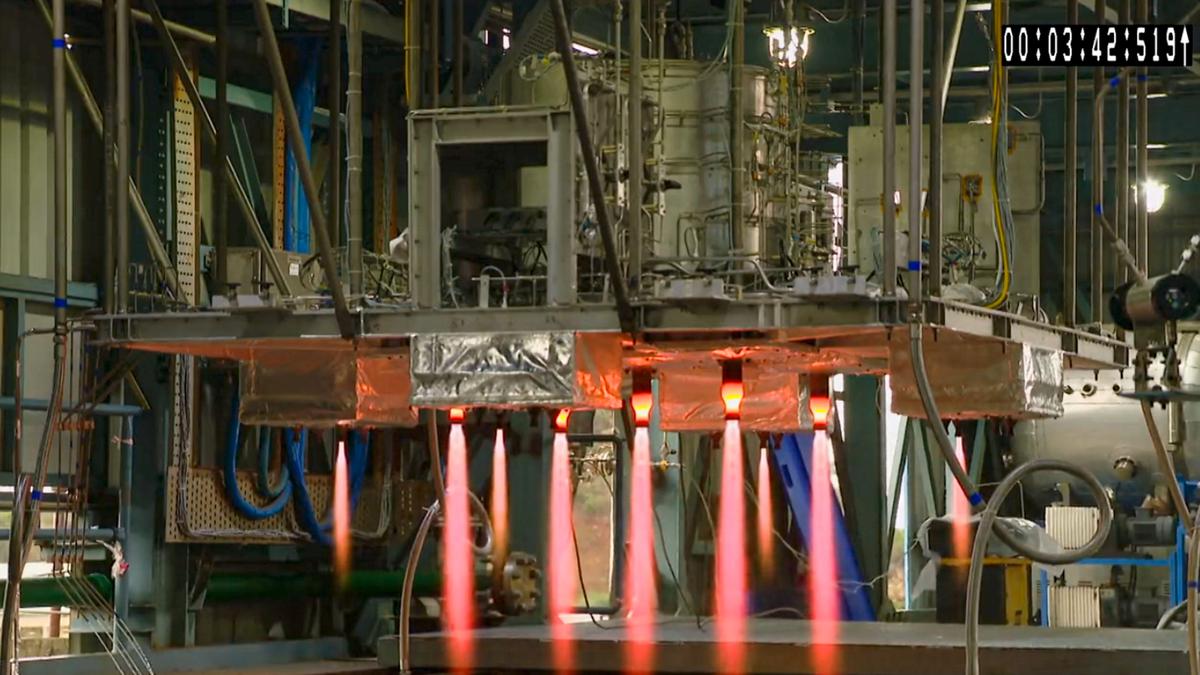
Gaganyaan mission: ISRO completes key engine test
The Hindu
ISRO has successfully completed the CE20 E13 engine hot test for the Gaganyaan qualification and 22-tonne thrust qualification
The Indian Space Research Organisation (ISRO) has successfully completed the CE20 E13 engine hot test for the Gaganyaan qualification and 22-tonne thrust qualification.
The engine was tested at ISRO Propulsion Complex (IPRC), Mahendragiri on September 22.
The CE20 engine is a vital component, serving as the powerhouse of the Cryogenic Upper Stage (CUS) responsible for propelling the upper stage (C25) of the LVM3 vehicle. It has demonstrated its capability by successfully operating at a thrust level of 19 tonnes in six successive LVM3 missions, including the Chandrayaan-2, Chandrayaan-3, and two commercial OneWeb missions.
Also read: Explained | After Chandrayaan-3, what has ISRO planned?
“To enhance the payload capacity of the LVM3 vehicle, ISRO is upgrading the CE20 engine. The upper cryogenic stage is being transformed into the C32 stage with increased propellant loading capacity, and the engine is being modified to operate at a higher thrust level of 22 tonnes. To ensure the engine’s readiness for critical missions, a series of ground hot tests were deemed necessary. The CE20 engine hardware referred to as E13 was selected for both Gaganyaan qualification and 22-tonne thrust level operations,” the space agency said.
The journey to achieving a 22-tonne thrust capability began with E13 HT-01, a test focused on engine tuning, successfully conducted for a 50-second duration. This initial test set the stage for the upcoming trials. E13 HT-02 marked a significant milestone, conducted on August 3, with the engine operating flawlessly for an impressive 720 seconds. This test demonstrated the engine’s reliability and stability.
“The third hot test, E13 HT-03, was the pivotal moment in completing the CE20 engine qualification for the Gaganyaan program. On September 22, this test was conducted at the state-of-the-art test facility located at IPRC, Mahendragiri. During this test, the CE20 engine operated at the coveted 22-tonne thrust level for a duration of 670 seconds. Both the engine and the testing facility performed flawlessly, meeting all the performance parameters,” ISRO said.











